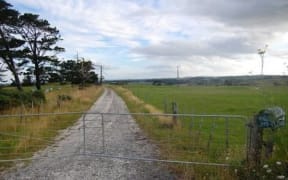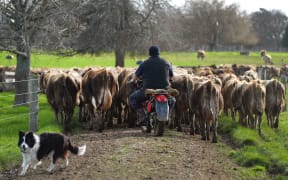The latest Federated Farmers confidence survey shows farmers are feeling more pessimistic and are expecting both the economy and their farm profitability to worsen.

Photo: AFP / Antoine Lorgnier
The survey is run twice a year and measures farmer confidence in the dairy, sheep and beef, and arable industry groups, as well as goat farmers, rural butchers, and beekeeper members.
The latest results shows confidence is slipping further into the negatives, driven by low commodity and farmgate prices, droughts and floods.
Pessimists outweigh the optimists, with 28.2 percent of respondents expecting general economic conditions to get worse during the next year and 42.9 percent expecting their farm's profitability to decline.
But Otago and Southland do buck some of the trends - farmers in the south are slightly more optimistic about economic conditions and their own profits.
Federated Farmers president William Rolleston said there were no surprises in the results.
"I thought that the trends were exactly as one would have thought they might be, given the circumstances, particularly with lower farmgate prices, the drought and the high dollar, have all combined to give a pretty predictable outcome."
The drop in confidence in the arable sector was tied to the dairy slump, Mr Rolleston said.
"The prices have been pretty low and also when you look at the dairy payout, arable farmers do actually sell quite a bit of product to dairy farmers, so they're caught up in the dairy slump as well."
Mr Rolleston said the dairy industry expected profitability to go down, as did sheep and beef farmers but not to the same extent.
That had resulted in farmers tightening up their spending.
"Farmers spending is a function of the farmgate prices and when farmgate prices drop, farmers drop their spending, and I think that it's actually a pretty good indication that farmers are taking the current drop in farmgate prices seriously, they're not sticking their heads in the sand, and that actually is very encouraging because it means they will be making prudent decisions that will tide them over until prices start to go back up again," he said.



